The gentlemen in the following list may not know what an online casino is but they sure did appreciate the thrill of gambling. All of them earned fame and glory because of their talents and there is hardly anyone in today’s world not knowing their names and works. But I bet not many of you know that they used to enjoy gambling a lot! A quick fact for our younger section of readers: online casinos are 24 years old and long before their birth the world knew and loved gambling just as much as we do now.
Fyodor Dostoevsky
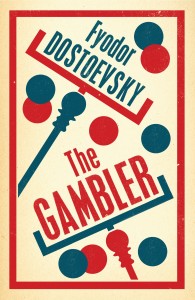 I recently read Dostoevsky’s novel the ‘Gambler’ which many believe is an autobiography reflecting on his own addiction to roulette. While reading, I felt this man’s love for gambling. But he got to know betting in a way we barely know it today. His first encounter with roulette was at Wiesbaden’s casino back in 1863. As one of the most beautiful casinos in the world, I’d say Dostoevsky had a great start and the love was instant. Unfortunately, this passion brought a lot of trouble for the genius writer as it turned into a gambling addiction. Ironically, the short novel (which I totally recommend) was written with the purpose of paying off some of his accumulated debts.
I recently read Dostoevsky’s novel the ‘Gambler’ which many believe is an autobiography reflecting on his own addiction to roulette. While reading, I felt this man’s love for gambling. But he got to know betting in a way we barely know it today. His first encounter with roulette was at Wiesbaden’s casino back in 1863. As one of the most beautiful casinos in the world, I’d say Dostoevsky had a great start and the love was instant. Unfortunately, this passion brought a lot of trouble for the genius writer as it turned into a gambling addiction. Ironically, the short novel (which I totally recommend) was written with the purpose of paying off some of his accumulated debts.
Giacomo Casanova
 I’m sure that gambling is not what pops up in your mind when thinking about the Italian writer and lawyer – Casanova. His famous ‘womanizer’ reputation was way more prominent than anything else he did. Around the 18th century, gambling was a popular activity in the ’high circles’ and he totally fell for it. In his memoirs, he even admitted having been tutored by professional gamblers and wrote about his strong emotional reactions when losing significant amounts of money. As opposed to Dostoevsky, Casanova never experienced a gambling addiction, he mostly played for the quick money or to get the desired attention of a certain lady.
I’m sure that gambling is not what pops up in your mind when thinking about the Italian writer and lawyer – Casanova. His famous ‘womanizer’ reputation was way more prominent than anything else he did. Around the 18th century, gambling was a popular activity in the ’high circles’ and he totally fell for it. In his memoirs, he even admitted having been tutored by professional gamblers and wrote about his strong emotional reactions when losing significant amounts of money. As opposed to Dostoevsky, Casanova never experienced a gambling addiction, he mostly played for the quick money or to get the desired attention of a certain lady.
King Henry VIII
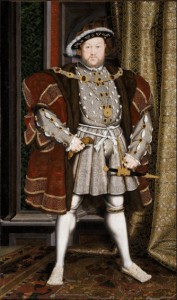 This accomplished leader in England’s history was famous for the separation from Roman Catholic Church, for having six wives and guess what else? Of course, being England’s Number One Gambler! He loved playing cards and dice, but his favourite game was ‘Bragg’ which is believed to be a very old version of poker as we know it today. According to sources he was rarely lucky and used to lose lavish amounts competing against monarchy leaders and other royalties. He even lost the beloved Jesus Bells of St Paul’s church on a single roll of dice. As a result, his opponent Sir Miles Partridge was punished with murder by the king himself. This made it very difficult for him to find gambling companions in the future.
This accomplished leader in England’s history was famous for the separation from Roman Catholic Church, for having six wives and guess what else? Of course, being England’s Number One Gambler! He loved playing cards and dice, but his favourite game was ‘Bragg’ which is believed to be a very old version of poker as we know it today. According to sources he was rarely lucky and used to lose lavish amounts competing against monarchy leaders and other royalties. He even lost the beloved Jesus Bells of St Paul’s church on a single roll of dice. As a result, his opponent Sir Miles Partridge was punished with murder by the king himself. This made it very difficult for him to find gambling companions in the future.
And now, a few centuries later when online gambling rules the industry, it would all look a bit different for our three gamblers! Let’s see, I picture Dostoevsky taking a break from writing by loading up his favourite online casino. Meanwhile, Casanova is walking through the busy streets of Venice and gambling on his smartphone. And lastly, King Henry gets to lose a huge amount of money at a secret poker tournament. I know it’s a weird picture but if you want to join these three gentlemen on their time-travel-gambling mission, visit www.bestonlinecasinos.org.uk to make sure you land safely on the top online casinos of our century!

 Now, it’s very important to keep in mind that the early settlers weren’t ALL puritans. Sure, there were those that despised European values and wished to start fresh, from scratch, but there were also very traditional Englishmen, Spaniards and French people who were quite happy with the way things were going in their homeland. They also (involuntarily on both sides) shared the continent with the Native Americans, who were super into gambling. And I’m not just talking about the stereotype of Native Americans owning casinos today, I’m talking about the little-known fact of
Now, it’s very important to keep in mind that the early settlers weren’t ALL puritans. Sure, there were those that despised European values and wished to start fresh, from scratch, but there were also very traditional Englishmen, Spaniards and French people who were quite happy with the way things were going in their homeland. They also (involuntarily on both sides) shared the continent with the Native Americans, who were super into gambling. And I’m not just talking about the stereotype of Native Americans owning casinos today, I’m talking about the little-known fact of  The Colosseum. We’ve seen it in countless pieces of media – stellar movies such as
The Colosseum. We’ve seen it in countless pieces of media – stellar movies such as  Well, no one can tell when and where blackjack was invented. Certainly, its history couldn’t be pinned down to a single person, event or a year. Search for the history of blackjack online and you’ll be bombarded with titbits of information. In their attempt to clarify things, those sites have created chaos and misinformation. But have no fear, we’re here! And we’ll tell you all you need to know without burdening you with too much information.
Well, no one can tell when and where blackjack was invented. Certainly, its history couldn’t be pinned down to a single person, event or a year. Search for the history of blackjack online and you’ll be bombarded with titbits of information. In their attempt to clarify things, those sites have created chaos and misinformation. But have no fear, we’re here! And we’ll tell you all you need to know without burdening you with too much information.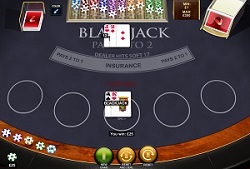 In the United States, the game became what we know it to be today. That’s also where the name “blackjack” was established. In the early days, a combination of an Ace of Spades with either a Jack of Clubs or a Jack of Spades that appeared in the player’s initial hand had the best payout – 10:1. The fact that both clubs and spades are black gave the name “Black Jack”. The game really flourished in the United States.
In the United States, the game became what we know it to be today. That’s also where the name “blackjack” was established. In the early days, a combination of an Ace of Spades with either a Jack of Clubs or a Jack of Spades that appeared in the player’s initial hand had the best payout – 10:1. The fact that both clubs and spades are black gave the name “Black Jack”. The game really flourished in the United States.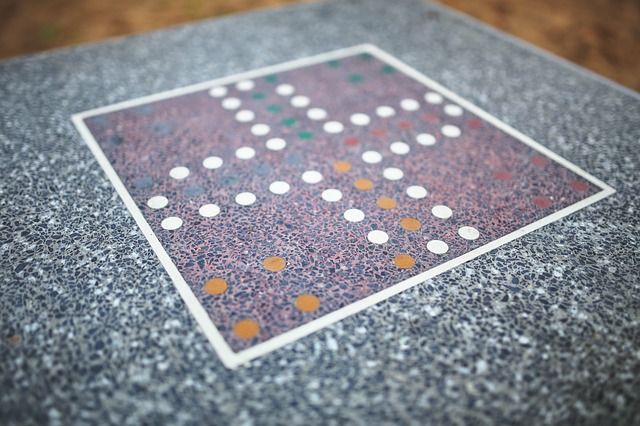 Now you probably all know chess to be the game of kings and one of the oldest board games in human history. Well, I’ve got news for you – many, many years before the Americanised version of it was rolled out and became a favourite for kids and adults alike, a game called Pachisi was known as the game of emperors. It goes back to India, where it was the Royals favourite way to spend their spare time and has concurred the world since.
Now you probably all know chess to be the game of kings and one of the oldest board games in human history. Well, I’ve got news for you – many, many years before the Americanised version of it was rolled out and became a favourite for kids and adults alike, a game called Pachisi was known as the game of emperors. It goes back to India, where it was the Royals favourite way to spend their spare time and has concurred the world since. 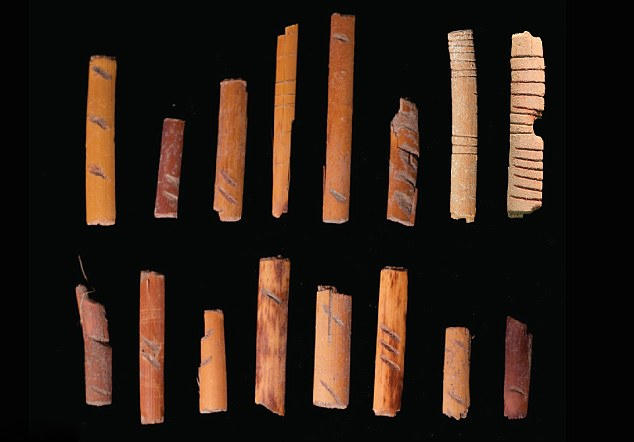 What you’re looking at are gambling chips found in what is currently known as the oldest casino ever discovered. It was created – where else? – in a Utah, inside a cave, by an unknown tribe of Native Americans. According to researchers, there’s roughly 10,000 gambling pieces, not all of which are chips. Some represent tools used to play the various casino games, but since we don’t understand their rules it’s hard to really tell what each of the found instruments was used for. We do know that, based on the sheer number of them within the cave, this was certainly a place of much reverence for the people of the tribe.
What you’re looking at are gambling chips found in what is currently known as the oldest casino ever discovered. It was created – where else? – in a Utah, inside a cave, by an unknown tribe of Native Americans. According to researchers, there’s roughly 10,000 gambling pieces, not all of which are chips. Some represent tools used to play the various casino games, but since we don’t understand their rules it’s hard to really tell what each of the found instruments was used for. We do know that, based on the sheer number of them within the cave, this was certainly a place of much reverence for the people of the tribe.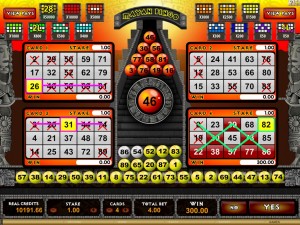 You might be surprised to know that the history of bingo goes back to the tradition of (bet you can’t guess it!)…elections! In the Italian city of Genoa in the early sixteenth century there was a common form of elections to the Supreme Council – the members of the council were chosen by pulling special balls with numbers, so in fact, the seats in the direction of Genoa were chosen randomly.
You might be surprised to know that the history of bingo goes back to the tradition of (bet you can’t guess it!)…elections! In the Italian city of Genoa in the early sixteenth century there was a common form of elections to the Supreme Council – the members of the council were chosen by pulling special balls with numbers, so in fact, the seats in the direction of Genoa were chosen randomly.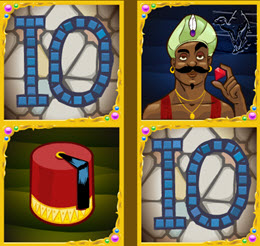 1.Arabian Nights – a video slot filled with the history of the Islamic world from the ninth to the thirteenth century which will totally take you there to such an extent that you will almost be able to smell the musk in the air. Arabian Nights is a 5-reel slot, with 10 paylines, wild and scatter symbols and free spins bonus. And since this is a NetEnt slot, you will have the opportunity to set your Autoplay feature to as much as 1000 spins, so you can just sit back and enjoy the ride through the Arabian scenery.
1.Arabian Nights – a video slot filled with the history of the Islamic world from the ninth to the thirteenth century which will totally take you there to such an extent that you will almost be able to smell the musk in the air. Arabian Nights is a 5-reel slot, with 10 paylines, wild and scatter symbols and free spins bonus. And since this is a NetEnt slot, you will have the opportunity to set your Autoplay feature to as much as 1000 spins, so you can just sit back and enjoy the ride through the Arabian scenery.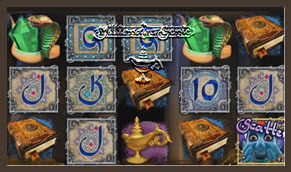 2.Millionaire Genie – based on the tale of Aladdin and his famous golden-lamp genie, this is definitely one of the all-time favourite slots to play online and that’s probably not only thanks to its huge jackpot, but also to the story behind it. Granted,
2.Millionaire Genie – based on the tale of Aladdin and his famous golden-lamp genie, this is definitely one of the all-time favourite slots to play online and that’s probably not only thanks to its huge jackpot, but also to the story behind it. Granted, 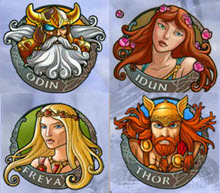 3.Hall of Gods – players can get a taste of the Norse mythology with this NetEnt slot, while playing for a triple pooled jackpot. The Midgard Serpent will reveal itself in the expanding wild and Odin’s ravens rule the scatter symbols. Top that with Thor’s hammer bonus round and what you get is a trip down mythology lane you are not to forget soon.
3.Hall of Gods – players can get a taste of the Norse mythology with this NetEnt slot, while playing for a triple pooled jackpot. The Midgard Serpent will reveal itself in the expanding wild and Odin’s ravens rule the scatter symbols. Top that with Thor’s hammer bonus round and what you get is a trip down mythology lane you are not to forget soon.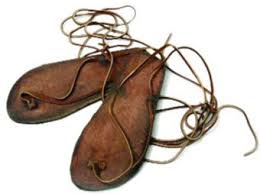 I’d like to take you back to the year 100 AD. Civilization has been around for a few thousand years already, but that doesn’t mean that most people – especially Europeans outside of Rome – are civilized yet. Wars and plunders are commonplace, and whenever there is a dispute between two nations it’s rarely solved with diplomacy and negotiations. More often than not, the slightest insult results in marching armies. Each ruler seeks to expand his territories by stealing from his neighbours while trying to keep his own provinces safe. Due to this tense atmosphere, it’s quite easy for certain regions to develop hostilities between each other. Two such regions are the Kingdom of Norway and the Kingdom of Sweden, whose kings have been trying to settle on their borders for years. I am not sure exactly how this conflict came to be, but I have a feeling that it’s due to the fact that both rulers were named Olaf (“There can be only one” and all that). Anyway, It seems inevitable that the dispute can only be solved through warfare… And then King Olaf of Norway receives a letter summoning him to a meeting with the Swedish King Olaf at Konungahella. Quite confused, the King of Norway takes some of his most trusted guards and goes there, not wishing to ruin an already very delicate relationship. In Konungahella, the king of Norway would meet personally with king Olaf of Sweden – a mild-mannered man who is surprisingly agreeable and easy to talk to. They spend hours negotiating their borders, finally agreeing on everything except for one thing – the province of Hising, which sometimes belonged to Sweden and sometimes to Norway. Unable to decide who should have it, the kings agree to cast dice for it, swearing that whoever rolls the higher number will own the territory. The Swedish king throws first, getting a pair of sixes. Quite content with his result, he assures king Olaf of Norway that he should not bother, but the king tries anyway, and much to everyone’s surprise, he also gets a pair of sixes. A reroll is immediately agreed upon, but the results are just as similar as the kings’ names. For the third time they roll, with the Swedish king once again receiving a pair of sixes. Meanwhile, the king of Norway gets one six… While the other die shatters in half from the impact, its sides turning up a seven. Seeing this as a sign from God, the king of Sweden immediately concedes the territory.
I’d like to take you back to the year 100 AD. Civilization has been around for a few thousand years already, but that doesn’t mean that most people – especially Europeans outside of Rome – are civilized yet. Wars and plunders are commonplace, and whenever there is a dispute between two nations it’s rarely solved with diplomacy and negotiations. More often than not, the slightest insult results in marching armies. Each ruler seeks to expand his territories by stealing from his neighbours while trying to keep his own provinces safe. Due to this tense atmosphere, it’s quite easy for certain regions to develop hostilities between each other. Two such regions are the Kingdom of Norway and the Kingdom of Sweden, whose kings have been trying to settle on their borders for years. I am not sure exactly how this conflict came to be, but I have a feeling that it’s due to the fact that both rulers were named Olaf (“There can be only one” and all that). Anyway, It seems inevitable that the dispute can only be solved through warfare… And then King Olaf of Norway receives a letter summoning him to a meeting with the Swedish King Olaf at Konungahella. Quite confused, the King of Norway takes some of his most trusted guards and goes there, not wishing to ruin an already very delicate relationship. In Konungahella, the king of Norway would meet personally with king Olaf of Sweden – a mild-mannered man who is surprisingly agreeable and easy to talk to. They spend hours negotiating their borders, finally agreeing on everything except for one thing – the province of Hising, which sometimes belonged to Sweden and sometimes to Norway. Unable to decide who should have it, the kings agree to cast dice for it, swearing that whoever rolls the higher number will own the territory. The Swedish king throws first, getting a pair of sixes. Quite content with his result, he assures king Olaf of Norway that he should not bother, but the king tries anyway, and much to everyone’s surprise, he also gets a pair of sixes. A reroll is immediately agreed upon, but the results are just as similar as the kings’ names. For the third time they roll, with the Swedish king once again receiving a pair of sixes. Meanwhile, the king of Norway gets one six… While the other die shatters in half from the impact, its sides turning up a seven. Seeing this as a sign from God, the king of Sweden immediately concedes the territory.